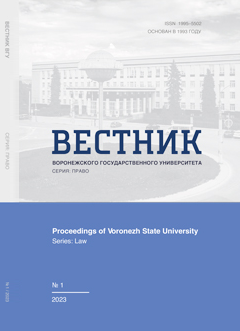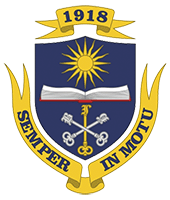Прокурор как субъект предания обвиняемых суду после судебной реформы 1864 года в Российской империи
Аннотация
Исследуются вопросы не только нормативной, но и фактической роли прокурора как субъекта предания обвиняемых суду после судебной реформы 1864 г. в Российской империи. Рассмотрена процессуальная деятельность прокуроров после поступления к ним от судебных следователей оконченных уголовных дел. Проанализированы сроки рассмотрения прокуратурой поступивших дел, практика их возвращения для дополнительного расследования и порядок прекращения уголовных дел. На стадии предания обвиняемых суду прокуроры реализовывали свои полномочия в целом эффективно. Имевшиеся по уголовным делам доказательства они оценивали в основном критически. С заключениями прокуроров о прекращении дел суды не соглашались относительно редко. Прокуратура предавала обвиняемых суду примерно по третьей части всех дел, направленных в суд с обвинительными актами, а по остальным делам обвиняемые предавались суду судебной палатой. Общий обвинительный уклон у прокуроров отсутствовал. Однако в некоторых случаях они предавали обвиняемых суду необоснованно, что влекло оправдание подсудимых, а иногда возвращение судами дел прокурорам.
Скачивания
Литература
A. T. The shadow side of prosecutorial activity // Judicial newspaper. 1883. No. 27. P. 10–11.
Varpakhovskaya E. M., Derevskova V. M. The powers of the prosecutor in preparation for trial in the legislation of judicial reforms of the XIX and XX centuries in Russia // Prologue: journal of Law. 2021. No.2 (30). P. 40–49.
The military court, its defenders and destroyers. St. Petersburg : Printing house M. I. Rumsha, 1883. 197 p.
Gainov I. D. The history of the formation and development of measures of criminal procedural coercion in Russia (XIII–XIX centuries) // Bulletin of the Kazan Law Institute of the Ministry of Internal Affairs of Russia. 2012. No. 4 (10). P. 107–112.
Gredinger F. I. Prosecutorial supervision for the fi fty years that have elapsed since its transformation according to the Judicial Statutes of Emperor Alexander II. Petrograd : Senate Printing house, 1915. 55 p.
Gurova O. Yu. Historical development of the stage of preparation for the court session and its current state // History of the state and law. 2004. No. 4. P. 29– 35.
Zhdanov V. About the wrangling of investigators with prosecutors (More about 309 art. of the Statute of criminal proceedings) // Journal of Civil and Criminal Law. 1885. Book 6. P. 12–37.
Illustrov I. Military courts in the Russian Army for the 25th anniversary. 1861–1885 : A review of statistical data on the reports of the Ministry of War. Moscow : Printing house A. Heavyweight, 1890. 162 p.
Kistyakovsky A. On the suppression of the accused ways to evade the investigation and the court. St. Petersburg : Printing house of the Governing Senate, 1868. 196 p.
Kudryavtseva A. V., Petrov A. V. Formation and development of the institute of case preparation for the court session in Russia: historical and legal aspect // The Legal state: theory and practice. 2014. No. 1. P. 24–32.
Ryabinina T. K. The history of the development of the institution of bringing to trial in post-reform Russia of the nineteenth century // News of the SouthWestern State University. 2012. No. 6 (45). P. 252–256.
Sobolevsky V. A. Justice and legal order in the troops. St. Petersburg : Printing house «Public benefi t», 1882. 626 p.
Tikhomirov D. P. Application of 283 art. of the Statute of criminal proceedings in practice and by law // Judicial Bulletin. 1872. № 140. P. 1.
Tkacheva N. V. Measures of restraint not related to detention in the criminal process of Russia : monograph / ed. A.V. Kudryavtseva. Chelyabinsk : Publishing House of South Ural State University, 2004. 192 p. URL
Fuchs V. Ya. Court and police : in 2 parts. Part 2. Moscow : University printing house, 1889. 232 p.
Khrulev S. Trial by jury : Essay on the activities of courts and judicial procedures. St. Petersburg : Printing house of the Governing Senate, 1886. 231 p.
Shcheglovitov I. On the termination of criminal prosecution // Journal of Civil and Criminal Law. 1887. Book 10. P. 37–81.










